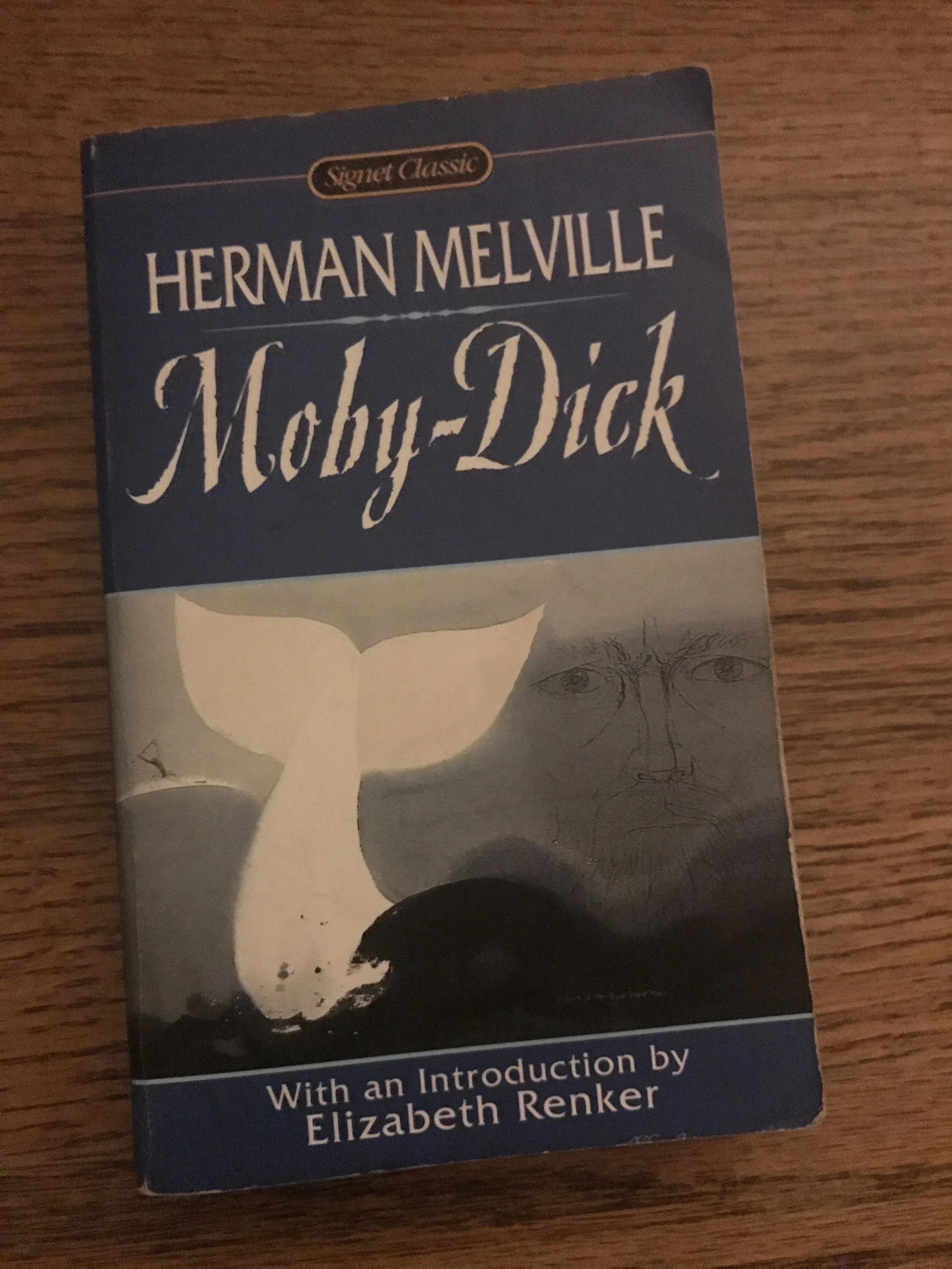Herman Melville gave us a narrative warning about obsession that was itself an obsession. While he gives us a story about a particular whale, Melville is clearly enamored with all details of the whales from every species. Before we even meet the main whale of the narrative, we are given details on the tails, the skulls, the bones, and oil of whales. Melville uses his obsessive details as a package to deliver the stories of two other obsessions.
Moby Dick, the whale antagonist of the novel by the same name, is the vindictive obsession of Captain Ahab. Once unburdened of a leg by the seemingly immortal behemoth, he risks the lives of his entire crew (and the well beings of their families) for the chance to end the life of the whale.
One of his crew, Ishmael, is a sea-loving, whale-admiring employee. He jumped on board to revel in the majesties of the whales. His obsession, if it can be classified as such, is a wholesome one that marvels at nature and its grandness. From the beginning he is itching to push out to sea and finds himself daydreaming in the crow's nest. In Ishmael, we have modeled a proper focus.
The rest of the crew is a fun-loving and hilarious bunch. For a while, I was certain I was reading the wrong book. Moby Dick has always been portrayed as a brooding narrative but for more then three quarters of the telling I was enjoying a comedic account of a whaling crew complete with a pipe-smoking mate that doesn't know he is being insulted and a cook who dabbles in preaching to sharks.
This crew, that shows us the enjoyment of life, is finally brought into ultimate danger by their captain who has placed all focus and meaning of his own life unto one end: the slaying of his foe.
It is in the final fifty pages that I realized I was reading a dark warning against vengeance (or any other unhealthy obsession or addiction)
There is a small flicker of hope when Ahab remembers his life and his family and all the goodness at home. He realizes what he could be sacrificing but throws it all away, for him and his crew, when he sees the fabled white whale cross the horizon.
Starbuck, the first mate, has the sternest warning, "Thou has outraged me, not insulted me, Sir; but for that I ask thee not to beware of Starbuck; thou wouldst but laugh; but let Ahab beware of Ahab; beware of thyself, old man."
Ahab does not heed the warning and the parable of unhealthy obsession is finished with an end at the bottom of the ocean. Life and laughter is extinguished.
Melville gives us an effective warning we should all heed: We all hold the potential of our own destruction and often, tragically the lives of those around us.
